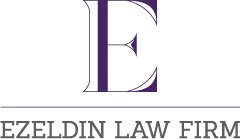Best Tax Lawyers in Illinois
Share your needs with us, get contacted by law firms.
Free. Takes 2 min.
Or refine your search by selecting a city:
List of the best lawyers in Illinois, United States
About Tax Law in Illinois, United States
Tax law in Illinois covers the rules and regulations that determine how individuals and businesses are taxed at the state and local levels. Illinois residents and entities are subject to taxes such as state income tax, sales tax, property tax, and various specialty taxes. The Illinois Department of Revenue (IDOR) administers the collection and enforcement of most state taxes. Understanding your obligations under both state and federal tax law is crucial, as failure to comply can result in penalties, interest charges, and legal consequences.
Why You May Need a Lawyer
There are several common situations when seeking legal counsel for tax matters in Illinois is highly recommended:
- If you are under audit or investigation by the Illinois Department of Revenue or the Internal Revenue Service (IRS).
- If you have received a notice of deficiency, underpayment, or other collection actions.
- If you are starting a business and need help understanding your tax obligations in Illinois.
- If you dispute the amount of property tax assessed on your real estate.
- If you need to resolve back taxes or negotiate a payment plan with state or federal authorities.
- If you are accused of tax fraud, tax evasion, or have criminal charges related to tax issues.
- If you wish to appeal an adverse tax decision or assessment.
- If you require assistance with estate planning or inheritance tax matters.
Local Laws Overview
Illinois tax laws are governed by several statutes and administrative rules. Here are a few key components:
- State Income Tax: Illinois has a flat-rate personal income tax. As of 2024, the rate is 4.95 percent for individuals and 7 percent for most corporations.
- Sales and Use Tax: The statewide sales tax rate is 6.25 percent, although local jurisdictions may add additional taxes, making the effective rate higher in some areas.
- Property Tax: Property taxes in Illinois are imposed by local governments, such as counties, municipalities, school districts, and special districts. Illinois has some of the highest property tax rates in the country.
- Specialty Taxes: There are additional taxes on items such as fuel, tobacco, alcohol, and gambling.
- Tax Credits and Deductions: Illinois offers a number of credits and deductions to individuals and businesses, but eligibility requirements can be specific and sometimes complex.
- Audits and Appeals: Taxpayers have the right to appeal if they disagree with a tax assessment. Strict deadlines and procedural rules apply.
- Statutes of Limitation: There are time limits for the state to assess taxes or for taxpayers to claim refunds, typically three years in most cases.
Frequently Asked Questions
What is the current Illinois state income tax rate?
Illinois imposes a flat individual income tax rate of 4.95 percent and a corporation income tax rate of 7 percent. Always check with the Illinois Department of Revenue for updates, as rates may change.
Are Social Security benefits taxed in Illinois?
No, Social Security benefits are not subject to state income tax in Illinois.
How do I dispute a property tax assessment?
You can file an appeal with your local county board of review. Strict deadlines apply, and you may need to provide evidence such as appraisals or comparable property data to support your appeal.
Do I have to pay taxes on online purchases?
Yes, most online purchases delivered to Illinois addresses are subject to use tax. Retailers with a physical or economic presence in Illinois are required to collect and remit sales tax.
What should I do if I receive a notice from the Illinois Department of Revenue?
Read the notice carefully to understand the reason. You should respond or pay by the deadline stated. If you disagree, you may be able to file an appeal or request a review. Consulting an attorney or tax professional is advisable.
Is there an estate or inheritance tax in Illinois?
Yes, Illinois imposes a state estate tax on estates exceeding a certain value threshold. However, there is no state inheritance tax.
What happens if I do not file or pay my Illinois taxes?
Failure to file or pay taxes can result in penalties, interest, liens, wage garnishment, and other collection actions. Persistent noncompliance may lead to criminal charges.
Can I set up a payment plan for back taxes in Illinois?
Yes, the Illinois Department of Revenue offers payment plans for eligible taxpayers. You must apply and comply with the terms. Professional advice can help you navigate this process.
How long does the state have to audit my tax return?
In most cases, Illinois has three years from the date your return is filed to audit. In cases of fraud or failure to file, this period may be extended.
Who should I contact for help with my Illinois taxes?
The Illinois Department of Revenue should be your first contact for questions on tax filings, notices, and disputes. For legal issues, a qualified tax attorney is recommended.
Additional Resources
Illinois residents and businesses can access several resources for information and assistance with tax matters:
- Illinois Department of Revenue (IDOR) for forms, guidance, and taxpayer services.
- Internal Revenue Service (IRS) for federal tax guidance and issues affecting federal returns.
- County Assessor or Treasurer's office for questions regarding property tax assessments and payments.
- Local legal aid organizations offering assistance with tax disputes for eligible individuals.
- Professional associations such as the Illinois State Bar Association for referrals to experienced tax lawyers.
Next Steps
If you need legal assistance with tax matters in Illinois, consider the following steps:
- Gather all relevant documents such as tax returns, notices, and correspondence from taxing authorities.
- Consider your specific issue and goals, such as contesting an assessment, addressing back taxes, or responding to an audit.
- Seek a consultation with a qualified Illinois tax attorney who can evaluate your case and explain your options.
- Consult the resources listed above for additional guidance and support with forms, deadlines, and procedures.
- Act promptly, as tax matters often involve strict time limits for appeals and compliance.
Navigating tax law in Illinois can be complex, but with the right professional support, you can protect your interests and resolve your issues with confidence.
Lawzana helps you find the best lawyers and law firms in Illinois through a curated and pre-screened list of qualified legal professionals. Our platform offers rankings and detailed profiles of attorneys and law firms, allowing you to compare based on practice areas, including Tax, experience, and client feedback.
Each profile includes a description of the firm's areas of practice, client reviews, team members and partners, year of establishment, spoken languages, office locations, contact information, social media presence, and any published articles or resources. Most firms on our platform speak English and are experienced in both local and international legal matters.
Get a quote from top-rated law firms in Illinois, United States — quickly, securely, and without unnecessary hassle.
Disclaimer:
The information provided on this page is for general informational purposes only and does not constitute legal advice. While we strive to ensure the accuracy and relevance of the content, legal information may change over time, and interpretations of the law can vary. You should always consult with a qualified legal professional for advice specific to your situation.
We disclaim all liability for actions taken or not taken based on the content of this page. If you believe any information is incorrect or outdated, please contact us, and we will review and update it where appropriate.
Browse tax law firms by city in Illinois
Refine your search by selecting a city.















